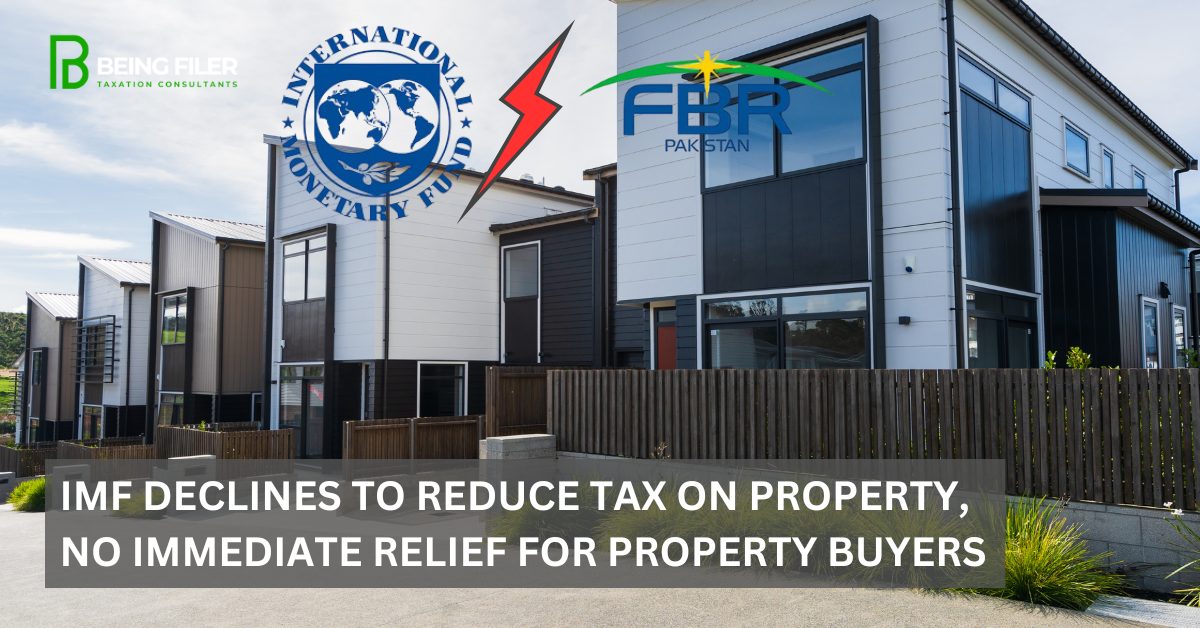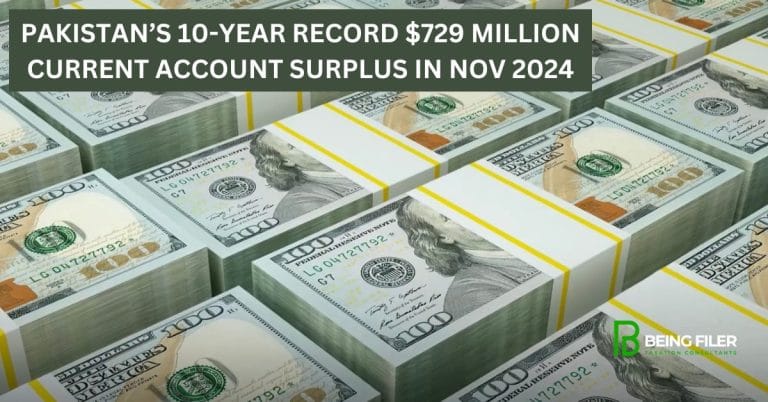IMF Declines to Reduce Tax on Property, No Immediate Relief for Property Buyers

Islamabad – March 24, 2025: The IMF declines to reduce tax on property, opposed to Pakistan’s request to lower taxes on real estate transactions, confirming that there will be no tax relief on property from April 2025. The Federal Board of Revenue (FBR) had sought a 2% reduction in withholding tax for property buyers, but the IMF has refused to approve the proposal.
According to sources familiar with the discussions, this decision aligns with the IMF’s previous stance on tax policies, as it had also rejected requests to lower taxes on tobacco and beverages. The global lender remains firm on maintaining strict revenue collection targets as part of Pakistan’s ongoing financial assistance program.
No Immediate Relief for Property as IMF Rejects to Lower Tax on Property
آئی ایم ایف نے پاکستان کی معیشت کو درپیش مالی چیلنجز کے پیش نظر ٹیکس اصلاحات پر سخت موقف برقرار رکھا ہے۔ جائیداد پر ٹیکس میں کمی پر آئی ایم ایف کا انکار حکومت کے لیے ایک بڑا دھچکہ ثابت ہوا ہے، کیونکہ ایف بی آر نے ودہولڈنگ ٹیکس میں 2 فیصد کمی کی درخواست دی تھی۔ اس فیصلے کے نتیجے میں پراپرٹی سیکٹر میں سرمایہ کاری کی رفتار متاثر ہو سکتی ہے، جبکہ خریداروں اور سرمایہ کاروں کو کسی بھی قسم کا فوری ریلیف نہیں ملے گا۔
Tough Road to Staff-Level Agreement with IMF as IMF Declines to Reduce Tax on Property
Pakistan is currently in negotiations with the IMF to secure a Staff-Level Agreement (SLA), a crucial step in unlocking further financial aid. However, in addition to tax-related commitments, Islamabad is now required to provide written assurances that provincial governments will not interfere in wheat procurement.
Despite these challenges, the IMF has expressed willingness to incorporate climate finance into the existing $7 billion Extended Fund Facility (EFF). Under the proposed Resilience and Sustainability Facility (RSF), Pakistan could receive up to $1 billion in funding for climate-related initiatives, pending approval from the IMF’s Executive Board.
Revenue Collection Concerns of FBR
The refusal to adjust tax policies adds pressure to the FBR, which is already struggling to meet its revenue collection target of Rs 1,220 billion for March 2025. Officials warn that the upcoming Eid-ul-Fitr holidays may further impact revenue generation, potentially leading to a shortfall of Rs 60-80 billion. The FBR has suggested shifting this deficit into the targets for April and May rather than June, which typically sees higher tax collection at the end of the fiscal year.
Finance Minister Muhammad Aurangzeb remains hopeful that Pakistan and the IMF will soon finalize an agreement, ensuring continued financial support amid the country’s economic challenges.
Pakistan’s Economic and Climate Challenges
While rejecting tax relief requests, the IMF has shown willingness to introduce climate finance under the Resilience and Sustainability Facility (RSF). If approved, Pakistan could receive up to $1 billion for climate-related projects, with the proposal set to be presented to the IMF’s Executive Board.
With no tax relief on property April 2025 as IMF rejects to lower tax on property, the government now faces increased pressure to explore alternative fiscal strategies while ensuring compliance with IMF conditions
Read IMF Agrees to Tax Relief on Property Transactions, Buyers Withholding Tax to Reduce by 2%
Read more about the Real Estate, Economy, Taxation, Finance, and News here.








One Comment